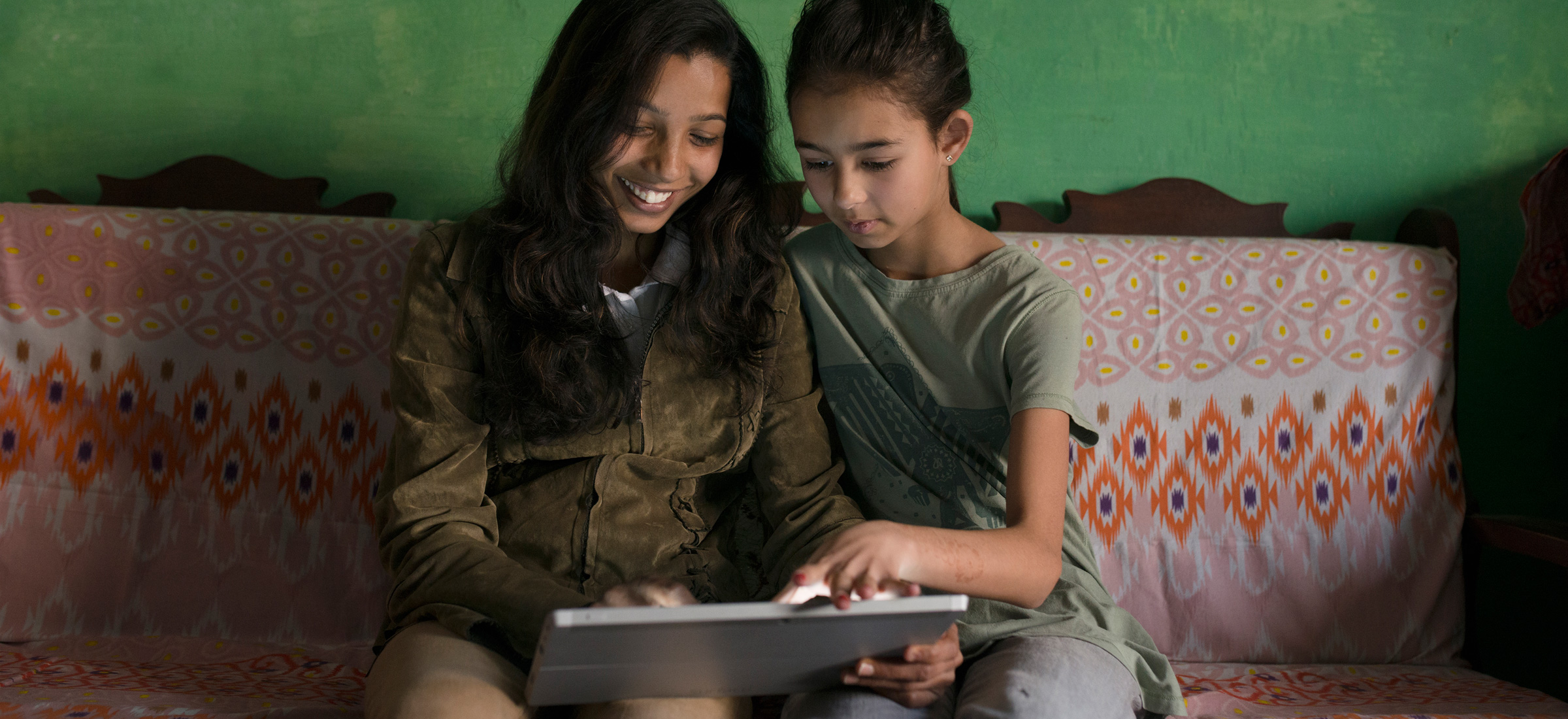Money in motion: Meeting the evolving expectations of economic migrants

While people have migrated to new countries in pursuit of brighter futures throughout history, ubiquitous digitization has opened new pathways for economic growth and opportunity around the globe. Digital nomads – professionals who travel while working remotely – have emerged in recent years alongside technological advances and the post-pandemic era of flexible work. In fact, approximately 24 million Americans intend to become digital nomads in the next three years and another 41 million are considering the lifestyle, according to Mastercard’s 2023 Travel, reimagined report. That’s just over 12% of the U.S. population.
This lifestyle drives a new set of needs for making and receiving payments, as well as managing money across borders. The rising demographic of digital nomads has also inspired emerging financial institutions to directly serve their money movement needs.
To that end, insights from Mastercard’s Borderless Payments Report reveal that consumers are increasingly favoring digital versus in-person cross-border payments, motivated by a desire for quick and secure capabilities to send money along with built-in confirmation that funds were received.
But despite critical relevance, the options for the way people pay and get paid across borders has, for many, failed to keep pace with modern life. Paired with rising consumer expectations, consumers surveyed expressed the growing demand for more practical, lower-cost, digital cross-border payment solutions that are not only instantaneous, but also provide a safe and seamless experience.
These needs are especially present in Eastern Europe, the Middle East, and Africa. In fact, migrants account for an average of 70% of the employed population in Gulf Cooperation Council (GCC) countries - and more than 95% of private sector workers in Qatar and the UAE – according to the Wilson Center. On the receiving side, inbound flows accounted for more than 15% of the GDP in 25 low- and middle-income countries (LMICs) in 2022, and in 2023 was estimated to reach $669 billion.
“Remittances have always been an interesting market for EEMEA because two of the largest three corridors on the planet are in the region,” said Onur Kursun, executive vice president, Transfer Solutions, Asia Pacific, Eastern Europe, Middle East, and Africa at Mastercard. “Fifteen years ago, you didn’t, for example, have people in Ukraine developing code for companies in Saudi Arabia, so there wasn’t a strong need for cross-border payments to individuals and therefore the payment process wasn’t smooth at all. With the rise of e-commerce and the gig economy, new payment flows have emerged that have raised people’s need for and expectations of cross-border payments generally. Faster refunds, for example, are important because people are no longer prepared to wait 5-7 days,” says Kursun.
New regulation and digitization have allowed telco players, fintechs, and marketplaces to incorporate remittances into their businesses. As we see more digital players enter the market, they will be looking to drive a better customer experience.
Serving a more sophisticated payments ecosystem
With rising worker migration fueling demand for more practical, lower-cost digital cross-border payment solutions, attention is turning towards how migrants can move their money more efficiently, both across borders and within the countries they call home.
As technology has developed, expectations around money transfers have evolved. People are looking for speed, simplicity, security, and resilience. Consumers can order and safely receive a physical package from an online retailer in a matter of hours – yet why can’t they safely send and receive money across borders in less time?
Mastercard’s Borderless Payments Report shows that when consumers choose a company for cross-border payments, the most important factors are low fees, speed of delivery, and ease of use. 79% of consumer respondents say having an up-to-date view of their financial situation in real-time would be helpful amidst the current economic volatility. Providers simply can’t afford to neglect these preferences if they wish to remain profitable.
“People want to know their provider isn’t a cold, clinical platform, but a company that can provide additional services and useful touches, such as automated insights into their financial health,” said Shivvy Jervis, award-winning innovation forecaster and journalist.
The same applies to domestic transfers, with Egypt as a good illustration. In an increasingly global, digital, and on-demand world, there are rising expectations for instantaneous transactions. Recent developments in Egypt’s payments sector have fueled demand for new payment methods that are fast, secure, and easy.
“Egypt is a great example of a region where we are helping to create billions of new transactions,” said Kursun.
“The banked population in Egypt is relatively low, yet around 80% of adults are now using our solutions. We’re providing secure financial infrastructure and look forward to replicating this setup in other countries to further facilitate financial inclusion and faster e-commerce.”
Combatting challenges
The Mastercard report shows that 41% of senders, and approximately half of receivers surveyed intend to use cross-border payments more frequently over the next 12 months, and about half plan to increase the value of their transactions.
But despite improvements to money movement, challenges remain. The World Bank’s Remittances Prices Worldwide Database highlighted that fees remain persistently high, costing 6.2% on average to send $200 as of the second quarter of 2023.
“With cost, there’s a transaction fee and there’s a foreign exchange (FX) component,” explained Kursun. “When you send Bangladesh Taka, for example, the rate you are converting your UAE Dirham to Taka is important because costs can reach 5% or even 10%. This is a problem across the world, but especially in Africa. It’s something we are now improving by leveraging our scale and reach at Mastercard to provide more cost-effective, transparent solutions.”
People are demanding greater transparency when it comes to pricing, citing hidden fees as an impediment to transacting more frequently. “This is important,” said Kursun. “If you rely on a remittance to pay your rent, even a $10 cut means it doesn’t do the job.”
Importantly, remittances should be accessible and provide choice in how users transfer and receive funds. The ability to track funds is a crucial point when considering that two in five (40%) consumers in the UAE have experienced an issue that has resulted in a late or failed cross-border payment, with similar numbers recorded in Saudi Arabia (39%) and South Africa (36%).
Of those in the UAE and Saudi Arabia who have experienced a late or failed payment in the past, over half spend more time worrying about whether their payment gets delivered on time. This comes with emotional ramifications, as well as practical consequences, with many highlighting a severe negative impact on mental wellbeing.
Another barrier to market growth is the persistent fear of fraud. 34% of those surveyed for the Mastercard Borderless Payments Report said they had stopped using cross-border payments out of fear of becoming a victim of fraud. It’s critical that the next generation of money transfer solutions addresses fraud head-on.
Finally, those receiving remittances need to be able to receive them in a way that works. More than a third of people surveyed in the Mastercard study said their families back home are restricted by limited accessibility to money that is sent to them, with many having to travel long distances to receive it. This makes it critical for any modern money transfer solution to address this gap with a variety of payout options and channels that make it easy for people to access their funds, no matter the situation.
“In the past, consumers were reliant on physical signs – for example a sign advertising cross-border payments, where they could pick up their money,” added Kursun. “But now, we deliver money directly to bank accounts, to cards, and digital wallets – as well as to thousands of cash payout options worldwide. With that, as people increasingly turn to digital methods it’s important that we don't lose sight of the importance of maintaining access to cash. This is essential for financial inclusion because not everybody has bank accounts and not everyone has cards – it’s about providing choice and driving inclusion.”
More choice, more inclusion
In 2022, half of global e-commerce sales were by way of digital wallet – with expectations that this will expand at a compound annual growth rate of 27% until 2030.
“You can now split invoices between wallets, which is great to pay people remotely and allow people working for themselves to collaborate with others more securely,” said Jervis. “More online security features are being baked into these systems, and for people who struggle to bank centrally, money being paid into digital wallets with no issues is groundbreaking.”
“But we also need to remember the continued importance of cash. Whether it’s regions in Africa or Costa Rica, it dominates the payments networks in many countries and reiterates how crucial choice is for so many,” added Jervis.
To ensure more people can access quick, reliable payments how and when they choose, Mastercard Move – Mastercard’s full portfolio of money transfer capabilities, which includes its Mastercard Cross-Border Services and Mastercard Send solutions – enables people and organizations to send and receive funds safely and securely, both domestically and internationally.
Mastercard Move provides bank, fintech and corporate customers with access to nearly 10 billion endpoints around the world, including access to 95% of the world’s banked population across more than 180 countries and 150+ currencies. It helps address the challenges faced by individuals and businesses as they seek to move money more efficiently in an increasingly borderless world.
“Cost, transparency, and choice of endpoints are the main challenges people tell us they are facing,” added Kursun. “And I believe that at Mastercard we’re effectively addressing them all.”
